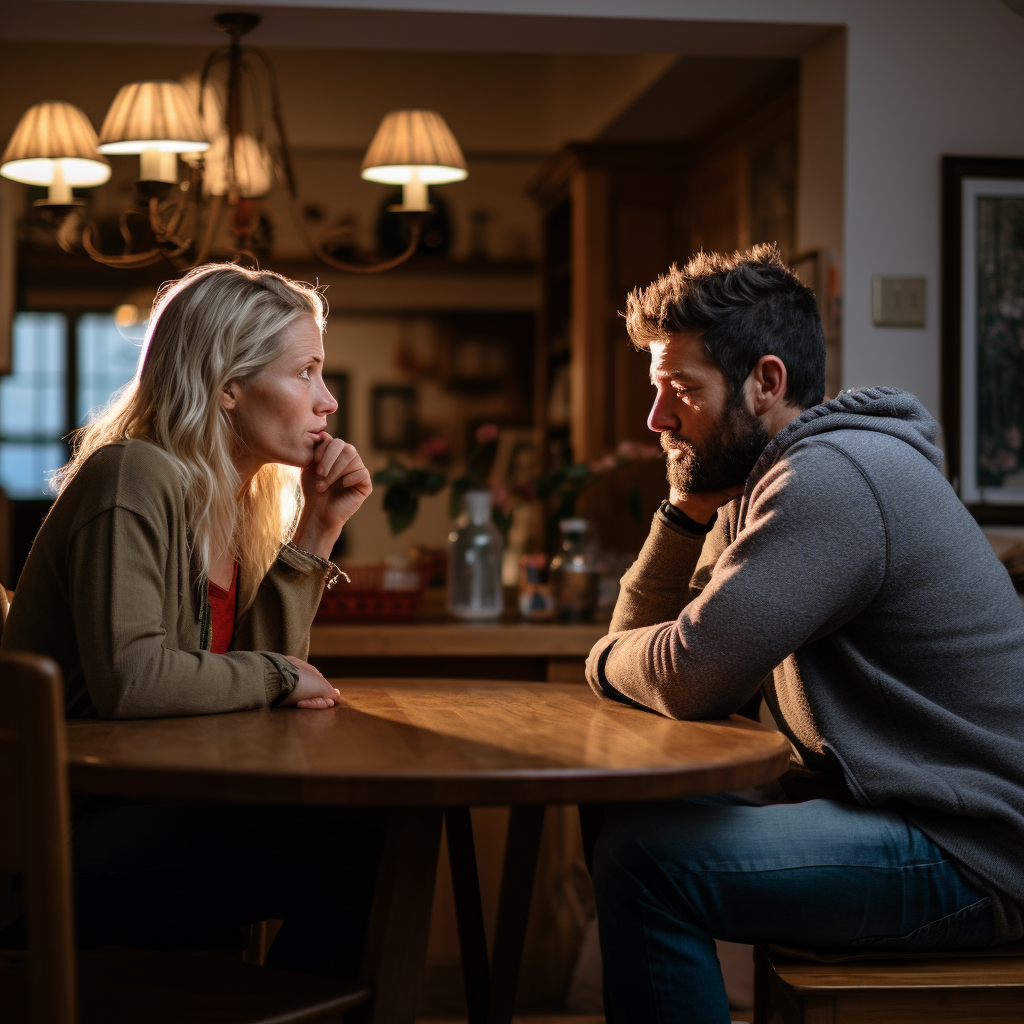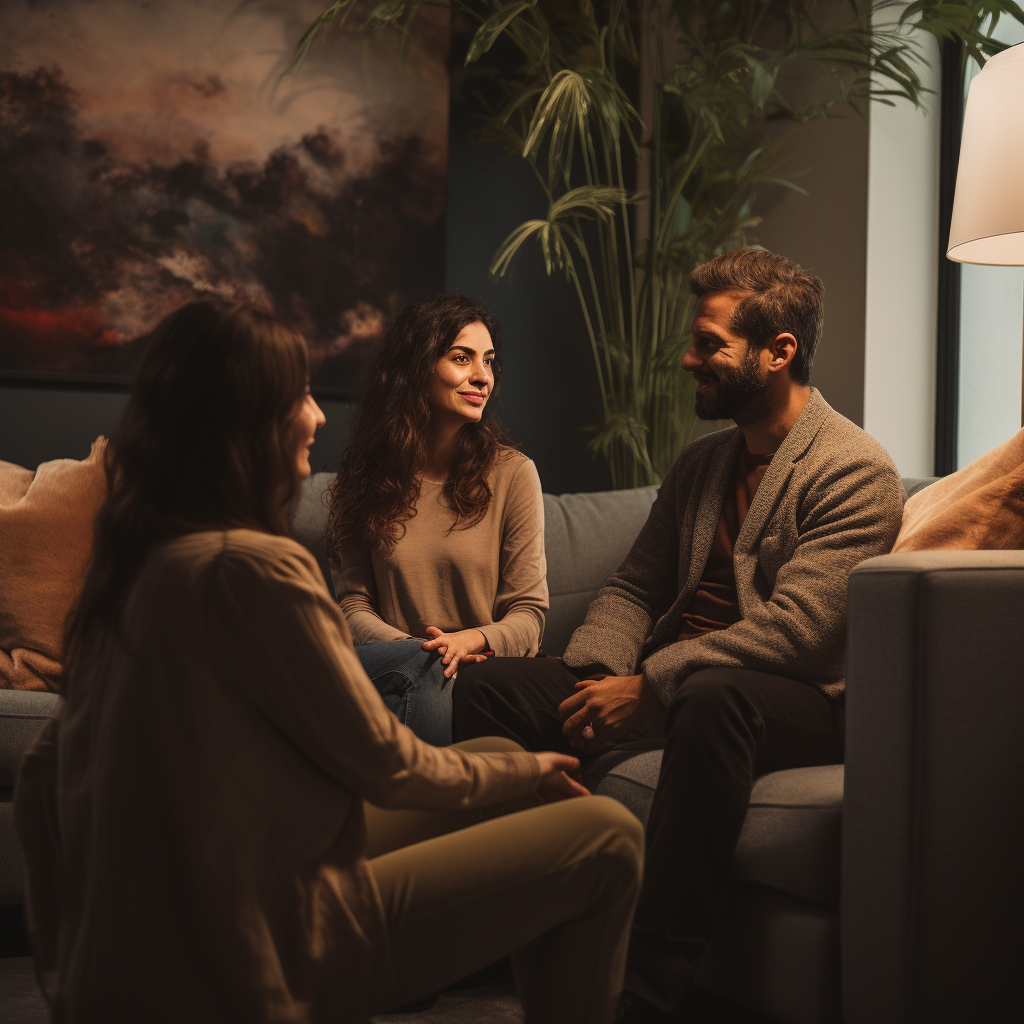Communication in Relationship: The Backbone of Partnership

As a licensed therapist and relationship expert with two decades of experience, I can vouch for the fact that communication skills are the key to having a good relationship. They form the very foundation that keeps healthy relationships strong, enabling couples to maintain their connection as they navigate difference, or even conflict.
However, it's essential to recognize that poor communication habits can also be the catalyst that tears relationships apart. I can attest that no relationship can truly thrive and develop over time without good communication.
The Early Days
At the outset of a romantic relationship, new partners are often all ears, generous with their time, and genuinely curious about one another. These initial stages are marked by a genuine appreciation of differences and a celebration of similarities. During this period, new partners seem rather fascinating to each other, and often deem each other to be 'fabulous'. However, as time goes on, our generosity in communication can wane, and those once-charming differences can become inexplicably irritating.
Many relationships could be significantly healthier and happier if partners knew how to improve communication, especially knowing how to address difficult issues or even deal with conflict.
Good Communication Skills Are Vital
These skills have a positive outcome on the mental well-being of partners and the health of the relationship itself. Improvements can be felt even with a few communication tips and skills under your belt.
Whether you are in long distance relationships, married at home together with kids, live with other family members, or are simply in the early stages of dating, there are many ways to improve communication in relationships to increase longevity and enjoyment of the relationship.
Trust me when I say that establishing healthy communication habits is 100% worth the effort and energy it requires.
What is Healthy Communication in Relationship?
Healthy communication in a relationship allows both partners to feel heard and discuss issues in a way that is kind and open - rather than passive aggressive or blame fueled.
Quality communication in relationships is achieved when both the communicator and receiver of the message or information feel safe within their interactions.
Effective communication in relationships allows space for both parties to explain their experiences and convey their own needs, which in turn keeps the relationship happy and healthy. It allows them to address issues head-on without escalating the conversation into a full-blown argument. It also allows them to recover faster and resolve issues in the aftermath of a heated discussion or fight.
Think of communication as an essential maintenance tool that creates relationship satisfaction and ensures mutual respect between partners.
Let's delve deeper into communication in relationships. Given my experience as a couples therapist, I'll explore this issue and provide helpful tips to ensure you and your partner get on the same page. This will help you improve communication and foster a healthy partnership built on understanding and mutual respect.
Poor Relationship Communication is Damaging

Destructive communication patterns erode the quality of a relationship. And many couples see that respect deteriorates, and even trust can diminish. This form of unhealthy commuication can show in differeny ways - from dismissive or aggressive non verbal body language, to the way that you speak to or about your partner, to whether you feel appreciated or repeatedly unappreciated or resentful in the relationship.
Poor communication leads to exhausting relationship dynamics. These can be where poor communication styles (being passive aggressive or shouting) become entrenched ways to communicate with one another.
Having good communication protects your own mental health within a relationship.
Tips to Improve Communication Skills
Maintain a Non-Judgmental Position

When communicating, it's important not to continuously judge our partner's words or how they say them. Doing so can lead to them becoming defensive.
Judgment also implies that we are correct, and it is our partner who has deviated from what is right or appropriate. When we judge others, we are placing ourselves in a superior position and saying, “I know best” or “My idea is right." This is never helpful in a relationship and sets up a binary of win/lose or black and white thinking – leading you straight in the direction of conflict.
Effective communication involves listening without judgement, even if our own emotions are signaling us to jump to hasty conclusions and defensive responses.
Don’t Be Threatened by a Different View

No two partners are the same as we all have different minds. You were always going to have to work through challenging situations in life and relationship difficulties.
For many of us, when we don’t like what our partner says or their gestures, we can feel threatened and respond to them by going into fight-or-flight (our survival mode), as if we were experiencing a physical threat to our lives.
Not being threatened by a different view requires curiosity
It is important to approach communication in a relationship with a spirit of curiosity - that's where you want to know your partner thinks and feels just like you did at the beginning of the relationship. You can remind yourself to stay open-minded, even if you are not aligned to their position.
Listen and accept the difference in your viewpoints, rather than spending your time judging them or becoming defensive as these are like a black hole taking you further away from healthy relating. Open communication can only be achieved if we allow our partner a safe emotional space to share their views and opinions in and about the relationship.
This also sets the tone for reciprocal communication patterns in the future, meaning that you will likely have more room to safely communicate your views to your partner too.
Listen to Your Partner as You Want to Be Listened To

A major spoiler of couple communication is when one or both partners just don't listen.
It can feel pretty maddening not to be listened to by someone you expect would want to listen to you. This can cause so many arguments. After many fights and failed attempts at trying to reach their partner, may people decide to no longer share things with their partner. This is a great loss, and one that will only worsen communication issues in the relationship.
I tell my clients they must momentarily “drop” themselves - to listen to their partner with curiosity and without an agenda.
Listening with curiosity means avoiding the urge to plan out responses in your head to discredit them. This is defensive behavior. Instead, just listen and sit with their words. Try to receive and acknowledge their intended message, even if their delivery is imperfect or their message upsets you.
By genuinely listening rather than being in defense mode, you are being a better partner to your significant other. Even if it feels uncomfortable and goes against your first instincts, it will create better outcomes and reduce the number of discussions that turn into fights in your relationship.
Listening can also be conveyed through your body language. Adopt a relaxed posture and turn to give your partner your full attention to demonstrate active listening.
If you need to calm down during the interaction, a few deep breaths can help to settle your nervous system. Give them the space to talk without interruption, until they have conveyed their desired message in full.
Check Your Ego

The ego plays a pivotal role in the dynamics of couple relationships, often residing at the very heart of what can make or break effective communication in a relationship. It is important to recognize that the ego can serve as a valuable protective mechanism, functioning as an early warning system that alerts us to potential threats.
However, the inherent issue arises when we perceive differing viewpoints as personal threats, triggering defensive responses aimed at self-preservation. These responses, which include blame, pushback, justification, and denial, are common defense mechanisms, yet more often than not they worsen conflicts and result in communication breakdowns.
Understanding the interplay between ego and communication is essential for navigating intimate relationships. It is important to understand how our ego-based responses can hinder our capacity to communicate with a loved one.
The detrimental impact of poor communication in a relationship, rooted in ego-driven defensive mechanisms, can be seen in all aspects of a partnership. Couples who find themselves trapped in negative patterns of interaction may feel increasingly isolated and frustrated as their efforts to connect consistently lead to more tension.
Breaking free from these patterns requires an understanding of ego-based defense mechanisms and an understanding of how you personally use defensive strategies to protect yourself during conflict. Remind yourself that these defense mechanisms may actually be worsening the situation for you and your partner.
Create Intentional Communication Time

Passive communicators will often avoid intentional conversations, fearing the confrontational aspect and dreading potential resistance from their partner.
If you wish to convey something to your partner, it's important to push through this discomfort and enter an intentional conversation with them, even if there is a chance they will respond negatively. Being avoidant in your communication styles does not solve the problems, and they may come out in more explosive and harmful ways in the future. Communicate problems instead of locking them away in your mind.
Alternatively, avoidance may lead to people walking away from the relationship entirely, rather than advocating for their needs and giving the relationship a chance to grow and improve. By learning to communicate needs, you can avoid calling it quits prematurely.
Create intentional communication time with your loved ones and commit to facing challenges head on. This gives you a chance to prepare and deliver your message in a calm and rational way. This will lead to a more fulfilling relationship overall and increase your levels of emotional intimacy.
Devices Down

Never expect your partner to listen to you when engaged with the TV or their mobile. You need to request their attention first and make sure you have eye contact (or their full attention, however this looks like for them).
If they have been pulled back to their device before you have finished, just stop speaking. Don’t compete with a device. This is not personal, and your partner is not meaning to be disrespectful, even if it does make you feel frustrated. Devices have been programmed to absorb our attention. You need to gently teach your partner how you wish to communicate.
One exception here is long distance relationships. Devices can be a great tool in long distance relationships, enabling couples to connect on a deeper level and maintain regular communication. Communication in relationships can be done through video calls or other messaging services. Online tools can be a fantastic use of digital devices to help deepen connections in a long-distance relationship.
Reward Kindness with Kindness

If your partner has put effort into bringing something up with you, respond with openness and integrity. Good communication in a relationship requires reciprocal standards of communication. That means being kind, even if you don't like their message. This will protect your partner's feelings during the interaction and keep the conversation in a safer place.
By remaining kind in these interactions, you can create a repeating pattern for future communications. This becomes the benchmark for acceptable communication standards going forward, writing the rulebook for how you communicate within the partnership.
Reward Unkindness with Kindness

Remember, even if your partner lowers the quality of their communication, you don't need to stoop to their level. This will only lead to an escalation of conflict and lower chances of conflict resolution.
Not everyone is an intuitive communicator, so it is important to try and see your partner's point, even if it comes with an imperfect delivery.
Find it hard to respond with kindness when your partner is being unkind? There is a way to behave better even when your partner isn't behaving well. This becomes about your relationship with yourself and how you are prepared to feel. It is also about how you wish to carry yourself in the world, and meeting your own behavioral standards inside of yourself first in a way that you expect from others.
You can lead with integrity and apologize if you drop below a level of communication that you see as acceptable. This will improve communication standards overall in the relationship.

Allow Processing Time

Before we communicate something to our partner, we tend to mull it over for a long period of time.
Remember, thoughts that are familiar to us may be entirely new ideas to our partner. Give them the time to process this new information, as you have had hours/days/weeks already thinking about it. Be prepared for a negative initial response, as these ideas may surprise or shock them.
By forcing your partner to respond in the moment you are putting them on the spot, and they may not be capable of giving you a well-thought-out response. It may be a good idea to give them some time, and then initiate a full discussion at a later date once both parties have had time to think about it.
Focus on a Single Message

When discussing something with your partner, decide on a single message to communicate. The 'everything at once' approach can feel attacking and leaves your partner little room to absorb what you are saying. It is also a one-way ticket to a full-blown fight.
Many of us feel inclined to bring other messages in, particularly when a conversation becomes heated. This is a defense mechanism, and the 'tit for tat' approach tends to fuel conflict more than resolve it.
Choose one message and communicate this message without bringing in additional issues.
Learn to Apologize

A crucial part of a healthy relationship is how partners repair the rupture following a communication breakdown.
We all need to reflect on our behavior and apologize when we have overstepped the line of disrespect. We need to apologize if we have provoked our partner, been unkind, or gone a bit crazy during the conflict. However, I don't recommend apologizing if you don’t mean it or if your partner is trying to force one out of you.
Also make sure never to say “I’m sorry but…” - this is disguised blame and will probably cause another round of conflict.
Your apology needs to be independent of whether they offer an apology to you. It is taking responsibility for yourself relationally, and this can make all the difference, creating more positive outcomes and improved conflict resolution skills.
Good communication in relationship helps couples to fight better too. It makes conflict easier to deal with and reduces the duration and intensity of fights.
Apologies are a good way to debrief from a heated situation, take ownership of your actions and resolve what each partner could do better in the future
Accept Compromise

Not every discussion will have your desired outcomes. Be prepared and willing to compromise if needed.
The capacity to compromise with your partner shows a high degree of emotional maturity, and a commitment to creating the best outcomes for the relationship overall. In relationships, no two individuals perfectly align, and so compromise is a powerful tool to ensure that both of your needs are met in an acceptable way. Compromise also demonstrates that you understand your partner's perspective and are willing to accept the differences in your views.
Communicate the Good as Well as the Bad

Whilst most of this article focuses on communicating important and serious messages, it is just as important to initiate communication around the good things! Acknowledge the things you appreciate and enjoy about your partner. Show your gratitude when they do something kind and take the time to express your love for them. Communicate your relationship wins and celebrate your personal achievements together.
You can also use body language and other nonverbal cues to communicate feelings of appreciation and love. Nonverbal communication is just as important as spoken word, and taking the time to hug your partner, laugh with them or cook their favorite meal are other valid ways to communicate your care.
Work on Communication Around Intimacy

Communication is key when it comes to intimacy. Discuss your desires when it comes to physical and sexual needs. Acknowledge the differences in the way that you and your partner approach intimacy and discuss how you wish to manage these.
For example, if you experience a mismatch in your sexual desires, have discussions surrounding this, rather than pretending the mismatch isn't there. If you have things you want to experiment with, introduce these ideas to your partner in advance, and assess their level of willingness.
These are exciting conversations to have and can lead to new and deeper ways of connecting with your partner. Have fun with it!
Use Communication as a Recovery Method After a Fight

Communication can be used to debrief after conflict. This helps both of you understand where you went wrong, and what can be done differently in the future. In this way, effective communication can be used to create healthier patterns and deal with conflict when it does arise.
Remember that conflict is natural and can occur in healthy relationships too. Nobody is perfect, and this applies to our communication skills too. Clashes do occur, and that is okay. How we both recover will determines the sustainability of the relationship.
Just remember, it takes time to break cycles of conflict and develop more relational communication styles.
Seek Professional Help

If you cannot improve communication in a relationship on your own, consider a licensed couples therapist. The environment of a private practice will allow you to communicate in a safe space. Couples counseling by a clinical psychologist or another mental health professional can guide you to communicate and facilitate healthier discussions.
If seeing a licensed therapist is not for you, there are plenty of other resources to help you with improving communication. There are online resources, such as my online program Transforming Couple Communication, which are self-led and can be done at your own pace in the comfort of your own home. These alternatives can be done alongside relationship therapy, or as standalone experiences.
Read up on different relational theories, such as attachment styles, to better understand why you communicate in the ways that you do. Having a good understanding of yourself and your own communication methods allows you to understand what you bring into the relationship.
Couples therapy is not the only way to build intimacy and learn how to communicate with your partner - it is up to you to find the type of professional help that works best for your dynamic.
You deserve a healthy relationship, so start developing more effective communication today
Good patterns of relationship communication are vital for creating fulfilling personal relationships.
Working on communication skills will improve the relationship's foundation and allow romantic partners to connect on a deeper level.
Why? Because when partners feel heard in a healthy manner, this creates positive psychology and a better understanding of your partner. They too will be able to communicate better with you, and more communication leads to a more successful relationship overall.


